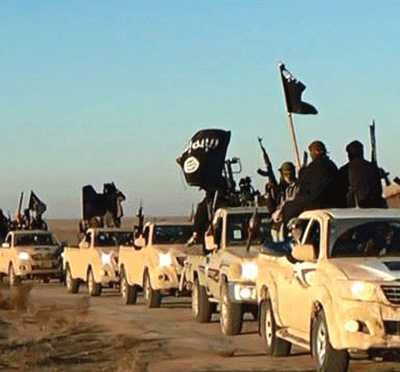International Relations Column: Perspectives on ISIS

Formal Military Authorization Is A Bad Idea
Jacob Wasserman, Maroon-News Staff
Congress should not formally authorize military force in Syria, as requested by President Obama. Though it is understandable that the White House wants to keep all options on the table by not limiting its future war powers, policy-makers. However, the President must look at previous bouts with insurgents as well as current regional forces to efficiently combat terror.
Previous U.S. involvement countering insurgents and radical regimes suggest that the United States can only partially help to rebuild states and fight terrorism but cannot eliminate the problem. Fighting in Iraq and Afghanistan for over a decade has cost the United States over $4 trillion and thousands of lives.
The Taliban still threatens Afghanistan’s democracy daily, and after almost ten years of fighting in Iraq to secure a peaceful democracy, the Islamic State of Iraq and al-Sham (ISIS) fully reversed any progress made.
If Congress authorized formal military force against ISIS, and the United States found itself in a position where it wanted to send in ground troops, it would fail to eradicate ISIS, which would re-strengthen soon after the U.S. removed its forces from the region. A more conservative strategy, such as the targeted strikes launched currently, is possibly less effective but also less risky for future involvement, especially when the U.S. has struggled to end previous missions combating terror.
The U.S. should not authorize the potential for additional military force due to the regional militaries’ current roles in combating ISIS. After ISIS released a video displaying its militants burning a Jordanian pilot alive, Jordan initiated a bombing campaign against ISIS and vowed to continue using force until they eliminated the group.
Then, after ISIS posted a video of 21 simultaneous Egyptian beheadings, the Egyptian and Libyan militaries launched multiple rounds of airstrikes, with Egyptian President Abdel Fattah al-Sisi promising to get revenge for the killings, according to The Guardian.
The Kurds have also been fighting the Islamic State in northern Syria and Iraq, helping slow the terror group’s progress.
Between these regional forces, the U.S. should not feel compelled to take the lead in this fight, especially on the ground. The most effective and safest way that the U.S. can involve itself is by funding military programs that fight ISIS and continuing its air campaign.
No Good Guy: This Is Not Our War
Michael Beshara, Class of 2018








